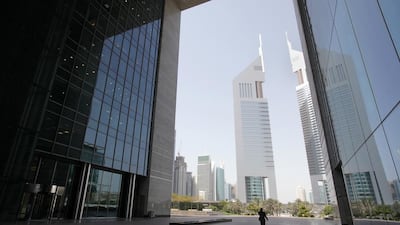A decade ago the most opulent conference of the season in Dubai was always the Hedge Funds World Middle East event, with - at its peak - almost a thousand high-rolling delegates to be feted and charmed.
This year, that conference has gone. In its place is the Middle East Investment Summit, formerly a smaller parallel event to the Hedge Funds World, aimed squarely at the new masters of the universe, the private investment office.
This is not such a shock; it was many years ago that some sovereign wealth funds began to lead the way and shun the super high performance-based fees of hedge funds for a do-it-yourself approach.
Last year’s big expansion of the Dubai International Finance Centre was almost entirely down to the growth of family offices as tenants.
Just as individual investors have increasingly flocked online to brokers offering them a single platform to manage their investments, such as Swissquote.ae in the DIFC and others operating globally, some of the region's big trading families have all gone DIY.
Now a somewhat smaller event than its flashy predecessor, the 20th edition of the Middle East Investment Summit last week attracted several hundred delegates in the appropriately business-like but still comfortable halls of the Jumeirah Emirates Towers.
Hedge funds were always notoriously opaque about their investment models, and some private investment offices hardly run an open book either. But it was curious to judge their mood and look at what the some of the brightest brains in the region are considering as investments, both for their masters and often they spoke on a personal level too.
The senior managing director of APG Asset Management, Gert Dijkstra, opened the event with a fairly downbeat, bearish presentation about his concerns for the heightened level of uncertainty in global financial markets today, citing Brexit in Europe and the US trade war with China as particular worries.
"We cannot predict the outcome of Brexit, and while the UK economy is less than 2 per cent of the global economy it has serious implications for the fragmentation of the much larger eurozone," he said. "Trump is another source of trade tensions. And we know that stability is always better for markets."
All the same, the day he spoke of how two major US stock markets surpassed their previous all-time highs, as if the roller coaster of the past six months had not happened.
James Burke, senior investment officer of the Kanoo Capital - the office of the famous Gulf trading family originally from Bahrain - gave an excellent presentation highlighting relative valuation levels currently seen in stock markets around the world.
US stock markets are at nose-bleed valuations, exceeding those witnessed before the Great Crash of 1929, he pointed out, noting at the same time that emerging markets comprise half the global economy compared with a quarter 20 years ago, and continue to grow faster.
But valuations in emerging markets are now much cheaper than in the US. Mr. Burke flagged up Thailand and Russia, both countries with low debt; Russian stocks trade on a bargain price-to-earnings ratio of five by comparison to the US in the early thirties.
The present ultra-high valuations for tech stocks also seemed to worry rather than attract the interest of local private offices. The vast majority of unicorn ($1 billion plus) stock market floatations recently have been for loss-making companies, making it impossible to speak about an earnings ratio as they have none.
Early stage start-ups might look the obvious alternative. But most family offices appeared to view this as trying to find a needle in a haystack.
Christopher Rolfe, chief executive of Go-Beyond Investing caught the mood right in suggesting to a smallish audience after lunch that this sort of speculation required a minimum investment in at least 10 start-ups to be viable in terms of risk tolerance, and clearly hoped to advise those interested accordingly.
Cryptocurrency and regional investment opportunities also failed to ignite much interest. But several savvy delegates spoke to me on a personal investment level about their interest in buying UAE real estate.
Perhaps the MEIS delegates were really trying to say it was time to ‘Sell in May and Go Away’ in the words of the old stock market saying.
One researcher recently noted that average annualised S&P returns over the past 60 years for May to October were just 4.9 per cent against 16.3 percent for November to April. Then again the last person at the MEIS I asked for their tip for 2019 said ‘gold’.
Peter Cooper has been writing about finance in the Gulf for two decades

